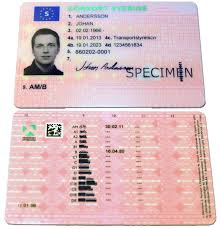The Ultimate Glossary Of Terms About Driving License Wheel Loader
본문
 Comprehending the Importance of a Driving License for Wheel Loaders
Comprehending the Importance of a Driving License for Wheel LoadersWorldwide of heavy equipment, wheel loaders play a vital function in building and construction, mining, and farming markets. These flexible machines are vital for tasks such as digging, lifting, and transferring products. Nevertheless, operating a wheel loader is not as basic as it might appear. To guarantee both security and efficiency, getting a driving license specifically for wheel loaders is paramount. In this post, we look into the requirement of this certification, the process of getting it, and the role it plays in work environment safety and efficiency.
 What is a Wheel Loader?
What is a Wheel Loader?A wheel loader, likewise called a front-end loader, mitt körkort körkortsutbildning online (postheaven.net) is a type of heavy equipment used to move and load products. It features a large bucket at the front, connected to a hydraulic arm, allowing it to scoop up, transport, and dispose products like soil, gravel, and sand. Due to its size and power, running a wheel loader needs specialized training and skill.
Why is a Driving License Required?
1. Safety Concerns
The primary reason for requiring a driving license for wheel loaders is security. These machines can weigh a number of lots and kopa a2 körkort online can cause significant damage if operated poorly. An untrained operator might fight with managing the devices, resulting in accidents that can threaten not just the operator but also other workers on the site. An appropriate license guarantees that operators understand the safety protocols and possible dangers associated with running a wheel loader.
2. Legal Compliance
Many nations and areas have rigorous policies governing the operation of heavy equipment. A legitimate driving license for wheel loaders might be a legal requirement in these locations. Companies require to guarantee that their operators are accredited to avoid legal repercussions, fines, or work stoppages due to non-compliance with labor laws.
3. Skill Development
Obtaining a driving license for a wheel loader includes extensive training that teaches operators how to manage the equipment successfully. This training normally covers:
Running techniques
Security protocols
Maintenance checks
Understanding load capabilities
Emergency treatments
Such abilities are vital not just for the safe operation of the machine but likewise for maximizing performance on the task site.
The Process of Obtaining a Driving License
The procedure of getting a driving license for running a wheel loader may vary depending on the nation or state however usually includes the following actions:
1. Pre-training Assessment
Before beginning official training, possible operators may undergo an assessment to guarantee their suitability for running heavy machinery. This can include assessing their fitness, coordination, and understanding of safety policies.
2. Formal Training Course
People will usually enlist in a training program that covers both theoretical knowledge and useful skills. Topics may include:
Equipment mechanics
Controls and instrumentation
Site security
Equipment inspection and maintenance
3. Hands-On Experience
Training generally consists of a considerable quantity of hands-on experience under the supervision of licensed trainers. This practice is crucial for establishing a strong understanding of how to operate a wheel loader with confidence and securely.
4. Assessment and Certification
Upon completing the training program, prospects will typically require to pass a written and practical evaluation. Successful prospects will then receive a driving license or accreditation authorizing them to run wheel loaders.
5. Continuous Education
Many companies stress the significance of ongoing training and refresher courses, helping operators stay updated on best practices, safety procedures, and brand-new technology in wheel loader operations.
Advantages of Being Licensed to Operate a Wheel Loader
1. Increased Employability
Having a driving license for wheel loaders makes candidates more attractive to possible companies. Business look for licensed operators to ensure safety and performance on job websites.
2. Improved Safety Records
Accredited operators tend to have a much better understanding of safety practices and guidelines, causing less accidents and injuries on the task website.
3. Improved Productivity
Trained operators can work more efficiently and efficiently, minimizing downtime and enhancing general efficiency, benefiting both workers and companies.
Conclusion
The role of a certified wheel loader operator is vital in numerous markets that depend on heavy equipment. The commitment to acquiring the required certification not just shows a commitment to professionalism however also boosts workplace security and performance. As the need for kopa A1 och a2 körkort online competent operators continues to grow, buying training and securing a driving license for wheel loaders is a rewarding endeavor that can open doors to many opportunities in the heavy equipment sector.

